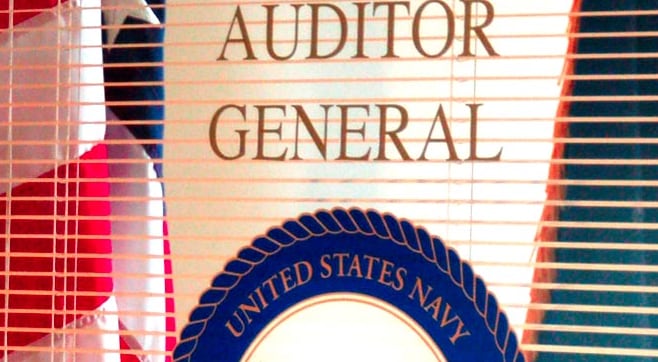The Naval Audit Service received a stay of execution Thursday as a key House panel voted to halt Navy leadership’s plans to gut the key oversight agency.
As part of the Fiscal Year 2022 defense bill markup passed by the House Armed Services’ Readiness Subcommittee, the sea service will be prohibited from changing the size or function of the audit service until the U.S. Comptroller General completes a report on the service’s operations.
The service has in recent years exposed overpaid benefits, underperforming technical schools and $5 million in potential fraud for Fiscal Year 2020 alone.
Since news of the planned cuts emerged earlier this year, auditors have told Navy Times that they fear the sea service and Marine Corps would be left without a critical oversight tool if such cuts went through.
The entire House Armed Services Committee is set to take up the defense bill in September.
Under the language passed Thursday, the Comptroller will have a year after passage to examine historical resources and staffing levels for the service, as well as any planned changes, such as those pushed this year by Acting Navy Secretary Thomas Harker.
That assessment will also look into where the service devotes its resources, its level of independence and how any changes to funding or staff would affect its mission.
RELATED

Navy leadership will have to report to Congress after the Comptroller assessment is completed and brief lawmakers on how the service plans to implement recommended changes, while also providing any audit service studies done by the Department of the Navy.
Few lawmakers have pushed back on potential audit service cuts harder than Rep. Elaine Luria, a Virginia Democrat and subcommittee member who represents Norfolk and is a retired surface warfare officer.
“Their important oversight role cannot be diminished,” she said in a statement Thursday. “We need an independent watchdog to ensure tax dollars are spent wisely, particularly as my colleagues and I work to increase military spending in this year’s defense budget.”
Navy Times first reported in February of plans by Navy leadership to cut the service’s budget by 70 percent in the coming years, a move that would have seen the service’s staff gashed from 290 people to 85 in a quest that sought to free up funds for shipbuilding.
The audit service’s budget for this fiscal year is about $46 million.
Naval auditors uncovered roughly $5 million in potential fraud for Fiscal 2020 alone, according to its annual report.
One auditor who spoke to Navy Times on condition of anonymity said earlier this year that they were not sure how the service could continue to do its job if the sought cuts were enacted.
“Once that oversight is not there, I think that presents a huge problem for the taxpayer, for our Marines and sailors, because we are looking out for the programs that they are using,” the official said. “If we are not able to do that, that check is gone.
Acting SECNAV Harker said in a letter to Luria earlier this year that the Navy was “concerned” about “the size and cost” of oversight offices such as the audit service, offices of inspectors general and other oversight entities, and the overlap of their mandates.
As a result, the Navy plans to “reshape” the audit service and disperse its employees to jobs elsewhere in the Department of the Navy, Harker wrote.
At the same time, Harker said the audit service “remains a critical oversight activity of the Department,” and that the service “will perform targeted audits of interest for the Secretary of the Navy, focusing on areas of largest impact to the DON mission that, consequently, provide the largest returns on investment.”
Geoff is the managing editor of Military Times, but he still loves writing stories. He covered Iraq and Afghanistan extensively and was a reporter at the Chicago Tribune. He welcomes any and all kinds of tips at geoffz@militarytimes.com.




